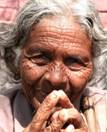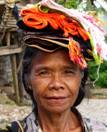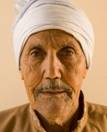 |
 |
|
|
|
||
| SEARCH | SUBSCRIBE | ||
| |
|
|
|||
|
|
UN Open-Ended
Working Group on Ageing Daily Summary - 2 By Bethany
Brown August 2, 2011
2nd Session of the UN Open-ended Working Group on Ageing Morning Session The morning's panel discussion centered on the right to health. A representative from the WHO highlighted how heath spans many facets of life and the many interdisciplinary interventions necessary to protect older people's right to health. A forthcoming report from the Special Rapporteur on the right to health for older persons will discuss findings that older people face rights violations in the areas of informed consent, barriers to access of primary care, access to palliative care, and in institutional settings. An expert on Alzheimer's Disease and dementia provided an example of the complexity and human rights issues surrounding older people's health. They are both primarily a diseases of older age. An individual may experience increased vulnerability requiring institutional care, challenges for family members providing care, and difficulty providing informed consent. Member states noted that neurological diseases are not well-understood or provided-for in some settings, presenting a challenge to capacity-building for caregivers and access to services. During
the discussion from the floor, a member state raised the
question, "Why choose a human rights response to the
challenges of the right health for older people?" While
governments may recognize that healthy aging is
important, it has not become a priority for many. Human rights
play an important role when individuals face obstacles
to enforcing their own rights. There are few
other topics where rights can take on such immediacy as
the right to health. Discussion of the right to health for older persons is particularly relevant in advance of the High-Level Summit on Non-Communicable Disease (NCD) in September. Older people carry the greatest burden of NCD, noted the Global Alliance, yet disaggregated data on the subject for those over age 49 is often nonexistent. Neurological disorders such as Alzheimer's Disease and dementia -which, representatives noted, have enormous impacts and costs - are not currently being discussed. Afternoon Session Violence against older people was the topic of the afternoon session. The Chair of the UN Committee Against Torture explored the importance to older people of the right to a hearing and the right to due process as preventative measures for violations of their rights. An older person from Tanzania shared compelling stories of violence against older women in Tanzania being perpetrated with impunity by those claiming the women are witches. Institutional care was
again highlighted in the context of violence against
older people. In
care homes, residents can face inappropriate medication,
locking doors, and other inappropriate, sometimes
degrading forms of restraints. Custody,
through in institutional care or incarceration, presents
the opportunity for state action or inaction to violate
the individual rights to be free from cruel and inhuman
treatment.
In the discussion from the floor, member states brought up examples from their own countries about silence and taboo around violence against older people. No sensitization to the issue exists within some systems, and it remains an invisible problem. This invisibility makes it difficult to explain whether the problem lies with a lack of legal norms or policies. NGO's and member states alike highlighted the disproportionate victimization of women and gender violence against older people. Again, from the floor, member states questioned the need for a legally-enforceable mechanism. Some states continued to voice their opinion that the existing mechanisms can address these problems. In the context of violence against older people, a panelist responded, a human-rights based response provides legitimacy to focus on a problem that has all the characteristics of an important crisis. It remains widely invisible and deeply damaging in families, communities, and societies. Submitted by Bethany Brown, JD* Policy and Advocacy Fellow, HelpAge USA *New York Bar Admission Pending
|
|||
| |
|
|
|



